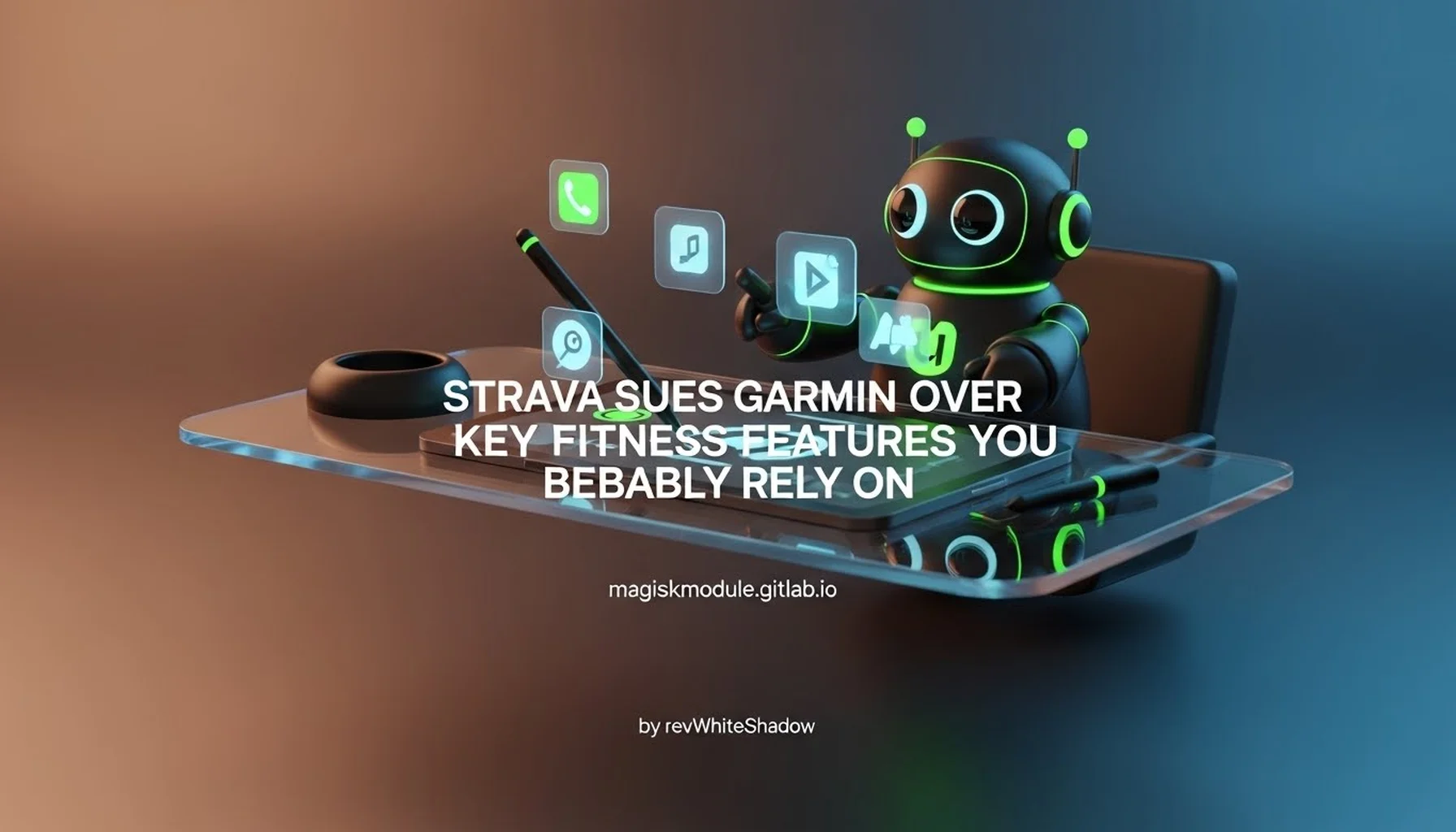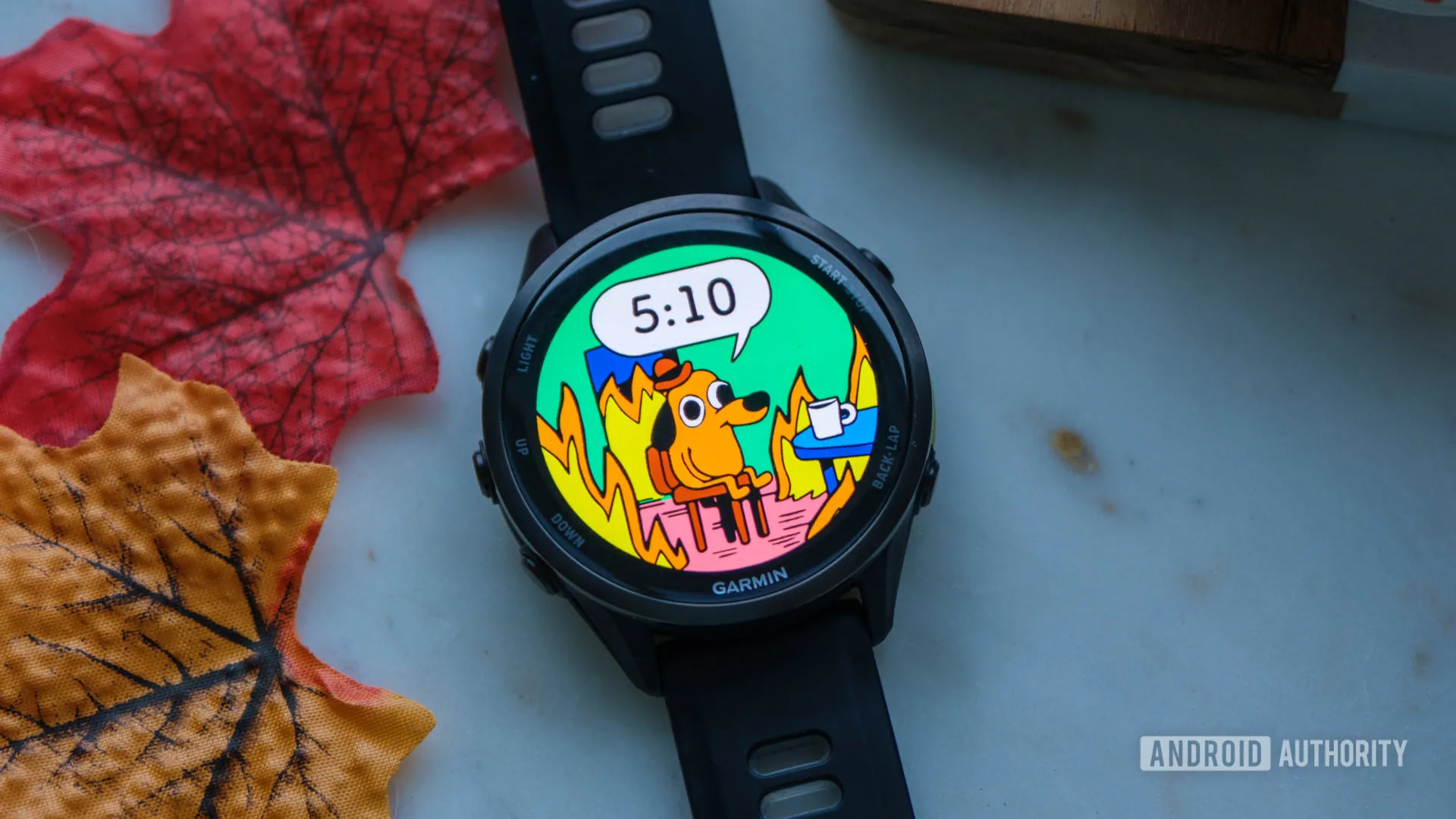
Strava’s Legal Battle with Garmin: Allegations of Patent Infringement Over Essential Fitness Features
In a significant legal development that could reshape the landscape of fitness tracking technology, Strava, the globally recognized platform for athletes, has initiated a lawsuit against Garmin, a titan in the GPS and wearable technology industry. The core of this high-stakes litigation revolves around Strava’s allegations that Garmin has infringed upon several of its key patents, patents that underpin features many fitness enthusiasts have come to rely on daily. This legal confrontation brings to the forefront critical questions about intellectual property rights in the rapidly evolving world of connected fitness and the protection of innovation within this competitive arena.
The Genesis of the Dispute: Strava’s Core Complaints
At the heart of Strava’s legal action is the assertion that Garmin has systematically incorporated technologies and functionalities into its devices and software that are directly derived from Strava’s patented innovations. Strava, renowned for its social networking capabilities for athletes and its sophisticated data analysis tools, has invested heavily in developing unique methods for tracking, analyzing, and presenting fitness data. The lawsuit claims that Garmin’s offerings, particularly within its popular Garmin Connect platform and its extensive range of GPS watches and cycling computers, mirror these proprietary advancements without proper authorization or licensing.
Specific Patent Allegations and Their Implications
While the full details of the patents in question are complex and reside within the legal documents, Strava’s public statements and the nature of the companies involved suggest a focus on patents related to:
- Advanced Activity Tracking and Data Synchronization: Strava pioneered sophisticated methods for capturing granular activity data, from real-time pace and elevation changes to heart rate variability and power meter metrics. The lawsuit likely targets Garmin’s systems for how they collect, process, and synchronize this diverse stream of data from their devices to their cloud platform. This could encompass algorithms for smoothing GPS tracks, calculating accurate segment times, or managing sensor data.
- Social Networking and Performance Analysis Features: A cornerstone of Strava’s success lies in its social platform, enabling users to connect, share activities, compete on segments, and receive kudos and comments. Strava’s patents may well cover the underlying architecture and functionalities that facilitate these social interactions and performance comparisons, such as leaderboards, personal best tracking, and the display of comparative performance data. Allegations here would imply Garmin has replicated these engagement-driving features.
- Route Planning and Discovery Tools: Strava’s heatmap data and route planning tools are highly valued by athletes seeking new challenges. If Garmin has developed similar, or allegedly infringing, functionalities for suggesting or creating routes based on aggregated user data or other proprietary methods, this could be a significant point of contention.
- Performance Metrics and Training Insights: Beyond basic tracking, Strava offers advanced analytics like relative effort, training load, and recovery advisor. Strava contends that Garmin’s own suite of performance metrics and training guidance tools may be built upon patented methodologies that Strava developed and protected.
The scope of these allegations is broad, suggesting that Garmin’s alleged infringements are not confined to a single feature but rather permeate multiple aspects of their product ecosystem. This comprehensive approach by Strava underscores their belief in the fundamental nature of their patented technologies to the modern fitness tracking experience.
Garmin’s Position and the Broader Industry Context
Garmin, a company with a long history of innovation in GPS technology, has historically defended its intellectual property vigorously. While Garmin has not yet released a detailed public statement responding to the specifics of the lawsuit, their typical stance in such matters involves a commitment to developing their own technology and respecting existing intellectual property. It is probable that Garmin will argue that their features are independently developed or licensed, or that Strava’s patents are invalid or not infringed upon by Garmin’s products.
The Competitive Landscape of Fitness Technology
The fitness technology market is incredibly dynamic and fiercely competitive. Companies like Strava and Garmin are constantly pushing the boundaries of what is possible, developing new algorithms, sensors, and user experience features. This innovation often leads to overlap in functionalities, but the line between inspiration and infringement can become blurred.
- Rapid Innovation Cycles: The speed at which new wearables and software are released means that companies are always looking for the next big thing. This can create pressure to adopt emerging trends quickly, potentially leading to accusations of patent misuse.
- Platform Interoperability vs. Infringement: A key challenge in this space is balancing the desire for seamless integration and interoperability between different devices and platforms with the need to protect unique intellectual property. Strava, for instance, thrives on its ability to ingest data from a multitude of devices, including Garmin’s, but its lawsuit suggests Garmin is now leveraging Strava’s protected innovations within its own closed ecosystem.
- The Importance of Patents in Tech: For companies like Strava, patents are not just legal documents; they are crucial assets that protect their significant investments in research and development. They serve as a barrier to entry for competitors and can provide a substantial competitive advantage. A successful patent infringement lawsuit can lead to significant financial damages and injunctions that force the infringing party to alter or cease offering certain products or features.
This legal tussle between Strava and Garmin is, therefore, not merely a dispute between two companies; it is a case study in the challenges of protecting innovation in an era of rapid technological advancement and intense market competition.
Understanding the Potential Ramifications for Users
The outcome of this lawsuit could have tangible effects on how millions of fitness enthusiasts interact with their devices and the platforms they use to track their progress.
Impact on Garmin Users
If Strava is successful in its claims, it could lead to several scenarios for Garmin users:
- Feature Modification or Removal: Garmin might be compelled to redesign or remove specific features that have been deemed infringing. This could include changes to how certain performance metrics are calculated, how activities are displayed, or even the underlying algorithms used for training analysis and route suggestions.
- Licensing Agreements: As an alternative to feature removal, Garmin could be forced to negotiate a licensing agreement with Strava. This would likely involve royalty payments to Strava and could potentially increase the cost of Garmin products or services in the long run.
- User Experience Changes: Even minor modifications to features could alter the user experience, potentially impacting the perceived value of Garmin devices and the Garmin Connect platform for some users.
Impact on Strava Users
While the lawsuit is against Garmin, Strava users might also experience indirect effects:
- Reinforced Platform Value: A successful outcome for Strava could reinforce the unique value proposition of its platform, potentially attracting more users and developers who seek to leverage its patented technologies.
- Industry Precedent: The lawsuit could set a precedent for how fitness tech companies protect their intellectual property, influencing future innovation and collaboration within the industry.
The Future of Fitness Data and Analytics
Beyond the immediate implications for users of Strava and Garmin products, this legal battle highlights broader trends and challenges in the fitness technology sector:
- The Growing Importance of Data Proprietary: As more data is generated by wearables and fitness apps, the ownership and protection of this data, and the algorithms that interpret it, become increasingly critical.
- The Evolution of Smart Wearables: The lawsuit underscores the sophisticated nature of modern fitness trackers, which are no longer just simple pedometers but complex devices capable of advanced biomechanical analysis, physiological monitoring, and social integration.
- The Role of Litigation in Innovation: While innovation is often driven by competition and collaboration, legal disputes like this demonstrate that litigation can also play a role in defining the boundaries of what is permissible and protecting the fruits of groundbreaking research and development.

Navigating the Legal Labyrinth: What Comes Next?
The lawsuit filed by Strava against Garmin is in its early stages. The legal process is often lengthy and complex, involving discovery, potential motions for summary judgment, and ultimately, if no settlement is reached, a trial.
Key Stages of the Litigation
- Pleadings: Both parties will file formal documents outlining their claims and defenses.
- Discovery: This phase involves the exchange of evidence, including documents, depositions, and expert testimony. This is often where the most detailed technical information about the alleged infringements is revealed.
- Motions: Either party may file motions with the court to resolve specific issues or to dismiss parts of the case.
- Settlement or Trial: Many patent disputes are settled out of court through confidential agreements. If a settlement is not reached, the case will proceed to trial.
The resolution of this lawsuit will be closely watched by the entire fitness technology industry. It could set significant precedents regarding the protection of intellectual property in the wearable technology and fitness analytics space, and it will undoubtedly influence the strategies of companies seeking to innovate and compete in this rapidly evolving market. The outcome will determine whether Garmin will continue to offer its current suite of features without alteration, or if it will need to adapt its offerings to respect Strava’s patented technologies, impacting the key fitness features that so many athletes rely on.
